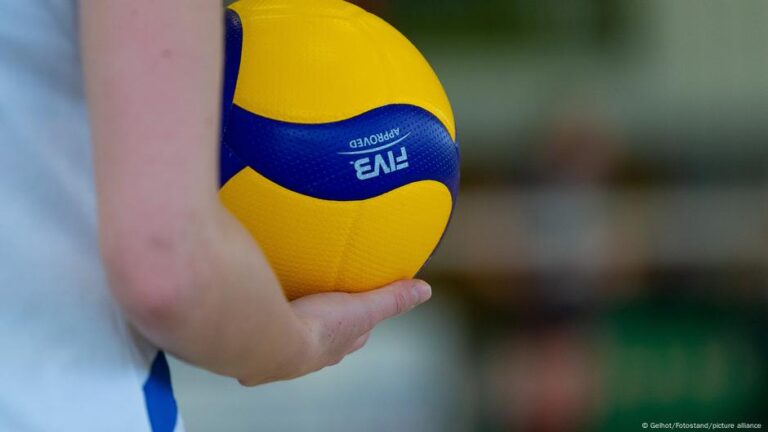Brazilian volleyball player Nayara Ferreira has said the decision by the Albanian Volleyball Federation (FSHV) to test her gender and suspend her from playing has left her bereft.
“I feel destroyed, like I’m losing my mind, because I think a lot about why this happened to me, why they did this to me,” said Ferreira, who plays in the women’s top division in Albania.
“Every day in my room I ask myself this question and up to now, I don’t know. I don’t understand why I’m in this situation,” Ferreira told DW. “They asked me for a gender test. I have played in seven countries including in Saudi Arabia. I’ve never had this question before, never.”
Ferreira was suspended in October by the FSHV after two rival teams complained and submitted documents asking for a review. The FSHV said in a statement that “the relevant analyses” will be carried out in order “to verify the natural physical performance and determine the gender of Dinamo team player Estephanie Goulart Ferreira Nayara.”
Ferreira’s club, Dinamo, reportedly called the decision absurd and an insult to a veteran player with a distinguished career. The Brazilian has been suspended for three weeks, missing three matches and says she has been met with silence throughout.
“I don’t have words to explain to you exactly what I feel,” Ferreira added. “Why are you [the FSHV] doing this to me? Just because you look at my face, just because you see my hair?”
Support from team
Ferreira confirmed she did the test voluntarily, but only because she wanted to help the club. “I don’t need to prove to anyone that I’m a woman, because I’m a woman. This is 100%.”
Dinamo team captain Elena Bego said it was a tough situation for the team.
“It was partly up to me to communicate the news to the other players. We were all shocked — this case is extremely scandalous,” Bego told DW. “We’ve supported Nayara all the way through because we know she is a girl.”
Dinamo head coach Orlando Koja added that Nayara’s absence also had a major sporting impact as the team were left shorthanded in big games without a key player.
For Ferreira, this situation has had personal impacts but the Brazilian also feels it about something bigger than just her case.
“I think after this situation we need to think about what respect is. Because with this kind of thing they destroy women in sports,” Ferriera said.
The question of gender identity in women’s sport has become a greater subject of contention in recent years, especially after the global controversy surrounding Imane Khelif, the Algerian Olympian who won gold in boxing in Paris last summer. This year, World Athletics also decided to make gender testing mandatory for all women competing.
Vjosa Cerkini conducted interviews for this article. Edited by Matt Pearson


